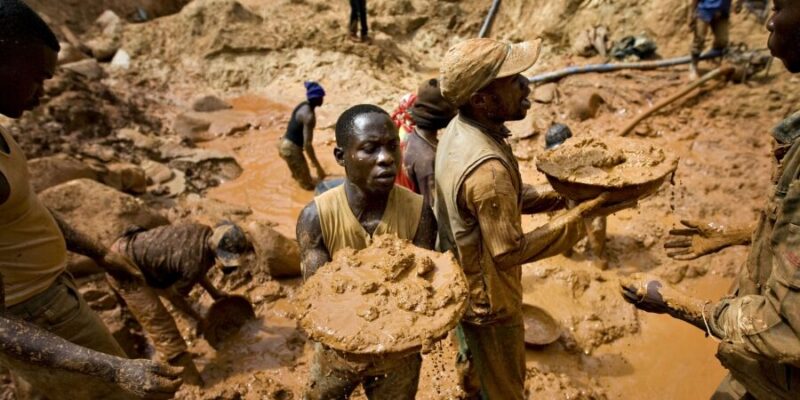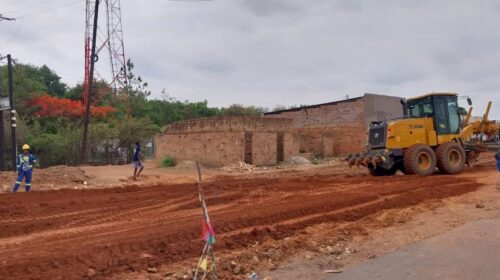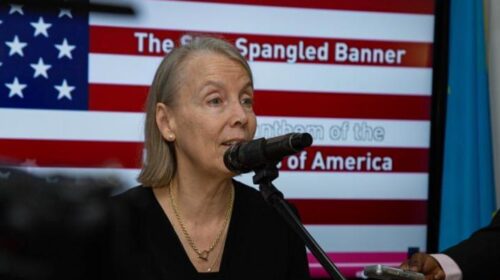DRC agrees to IMF deal but players worry over looming purge of sector
- IMF committed to a three-year credit to the tune of $1.5 billion. But it came with conditions, one of which was to enhance the fight against graft as well as clean up messy or lopsided mining agreements granted to foreign firms.
- The arrangement is such that the DRC must revise old agreements for mining as well as set up policies that will prevent future deals from being one-sided.
- One such contract has stepped on the toes of Chinese investors who signed a contract in 2008 to extract minerals in Lualaba Province.
The Democratic Republic of Congo’s decision this week to launch a programme meant to clean the lucrative mining sector is causing jitters among players who may have benefited from skewed contracts.
The programme to purge the sector, Congo’s biggest source of revenue, is a result of an agreement with the International Monetary Fund (IMF) in July. Under this arrangement, the IMF committed to a three-year credit to the tune of $1.5 billion.
But it came with conditions, one of which was to enhance the fight against graft as well as clean up messy or lopsided mining agreements granted to foreign firms.
The arrangement is such that the DRC must revise old agreements for mining as well as set up policies that will prevent future deals from being one-sided. One such contract has stepped on the toes of Chinese investors who signed a contract in 2008 to extract minerals in Lualaba Province.
Jean-Jacques Kayembe, the national coordinator of the EITI (the Initiative for the transparency of the extractive industry formed actually in 2009), said his work began with examination of the contract signed by Sicomines whose headquarters are based in Lualaba.
This week, Kayembe promised “a final report and a public debate” once his teams have finished investigating Sicomines. But that decision alone could rope in many unknown players in the past regime.ADVERTISEMENT
“We decided, on the directive of the Minister of Planning (Christian Mwando), to conduct a thematic study, an evaluation of the Sicomines project. That is to say, since the DRC signed this contract, how has it been implemented? It is a project that has two components: The infrastructure component and the mining component,” he said.
Evaluation
“Since we started to implement it, we had never evaluated it to know where we are. You will remember that there was controversy around it. We went from $9 billion to $6.5 billion in revenues and a good part, almost $3.5 billion was for the mining project itself and $3 billion for the infrastructure project to support the mining.
“What level are we? We sent a strong team to Lualaba to collect the latest data in order to finalise the thematic study,” Jean-Jacques Kayembe told The EastAfrican.
Yet, well before the EITI report, tension is perceptible in the mining community in the DRC. Mines Minister Antoinette Nsamba, in office since April 2021, has promised to change things in the mining sector in the DRC.
“We are going to revisit the mining contracts. You see that nothing is working so far,” she said last July. But the minister says she now wants “win-win” contracts.
The DRC’s foreign miners are 60 percent Chinese companies. While she assured the operators of fairness, the Chinese themselves have been lobbying quietly to be treated preferentially under the new policy.
Several days after her statement, the Minister for Mines received Zhu Jing, the Chinese ambassador to the DRC. The ambassador told the minister it would be necessary to “strengthen the partnership between China and the DRC.”
Mr Zhu Jing called the partnership “strategic and win-win.”
At this stage, if the revisiting of mining contracts is not guaranteed, the EITI report could nevertheless pave the way for the prosecution of certain managers at the time of Joseph Kabila’s presidency, both for suspicion of corruption and allegations of embezzlement hung over what had been dubbed “the deal of the century”.
Some observers say there have been blockages in the transmission of information to the EITI, probably by people keen to cover their backs.
Gécamines, the Congolese state mining company which acted as the local partner eventually handed over documents after weeks of procrastinating. There were accusations one of the documents on the Sino-Congolese contract had been amended before submission.
The Ministry of Mines, however, said it had no idea who amended the contract. After representations to the presidency, this document was finally handed over by Gécamines, nonetheless.
The EITI says it will make public all the secrets that have remained hidden from public scrutiny and debate.
In a letter, the Minister of Mines recommended to the prime minister to reconsider the exemptions granted to Sicomines. And for the first time, the Sino-Congolese joint venture has promised local residents $ 11.5 million worth of local projects.
Everyone is awaiting the EITI report, however.
Source: theeastafrican.co.ke
![]()





